
npj Aging and Mechanisms of Disease
Scope & Guideline
Exploring the Mechanisms of Aging and Longevity
Introduction
Aims and Scopes
- Mechanisms of Aging:
Research articles that explore the cellular and molecular mechanisms involved in aging processes, including studies on mitochondrial function, cellular senescence, and metabolic changes. - Age-related Diseases:
Investigations into diseases that are commonly associated with aging, such as Alzheimer's disease, cancer, and cardiovascular diseases, emphasizing their biological underpinnings and potential interventions. - Model Organisms and Systems Biology:
Utilization of model organisms (like Drosophila and mice) to understand aging mechanisms and test therapeutic approaches, promoting a systems biology perspective on aging. - Biomarkers of Aging:
Studies identifying and validating biomarkers that can indicate biological age or the presence of age-related pathologies, facilitating early diagnosis and treatment. - Therapeutic Interventions:
Research focused on potential therapeutic strategies to mitigate aging effects or treat age-related diseases, including pharmacological approaches and lifestyle interventions.
Trending and Emerging
- NAD<sup>+</sup> and Metabolic Interventions:
Research highlighting the role of NAD<sup>+</sup> in aging and its potential as a therapeutic target has surged, indicating a growing interest in metabolic interventions to enhance cellular function and healthspan. - Neurodegenerative Disease Mechanisms:
An increasing number of studies are focusing on the mechanisms underlying neurodegenerative diseases, particularly Alzheimer’s, as researchers aim to unravel the complexities of cognitive decline and develop targeted therapies. - Non-invasive Biomarkers and Imaging Techniques:
The use of non-invasive biomarkers and advanced imaging techniques is on the rise, making it easier to study aging and disease progression in clinical settings without the need for invasive procedures. - Social and Environmental Influences on Aging:
There is a burgeoning interest in how social factors and environmental influences affect aging and lifespan, with studies exploring the impact of social interactions on health outcomes. - Cellular Senescence and Aging:
Research into cellular senescence, its role in aging, and its implications for age-related diseases is gaining traction, reflecting a deeper understanding of how aging affects cellular function and tissue homeostasis.
Declining or Waning
- Traditional Genetic Studies:
While genetics remains a vital area of research, there has been a noticeable decline in traditional genetic studies focusing solely on single-gene effects on aging. The field is shifting towards more integrative approaches that consider gene-environment interactions and multi-gene networks. - Invasive Biomarkers:
Research involving invasive techniques to identify biomarkers of aging is becoming less common, as non-invasive methods gain popularity due to their feasibility and patient comfort. - Focus on Isolated Aging Mechanisms:
There is a reduced emphasis on studying isolated aging mechanisms without considering their interplay with other biological processes, as the trend moves towards a more holistic understanding of aging as a multifactorial phenomenon.
Similar Journals
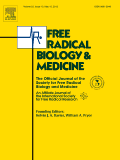
FREE RADICAL BIOLOGY AND MEDICINE
Advancing Knowledge in Biochemistry and Medical PhysiologyFREE RADICAL BIOLOGY AND MEDICINE, published by Elsevier Science Inc, is a premier journal dedicated to the field of biochemistry and medical physiology. With an ISSN of 0891-5849 and an E-ISSN of 1873-4596, this journal stands out with its impressive ranking in the 2023 category quartiles: Q1 in Biochemistry and Q1 in Physiology (medical). Specifically, it has achieved a remarkable position of 29th out of 438 in Biochemistry and 8th out of 113 in Physiology, placing it firmly in the 93rd percentile of its field, as per Scopus rankings. Since its inception in 1987, the journal has focused on advancing the understanding of free radicals and their role in biological processes, encompassing a wide range of topics from oxidative stress to therapeutic applications. Although it does not currently offer open access, the journal's rigorous peer-review process and impactful research ensure that it remains a valuable resource for researchers and professionals seeking to explore the intricate relationships between free radicals and health. The journal's headquarters are located at STE 800, 230 Park Ave, New York, NY 10169, reflecting its esteemed place within the scientific community and commitment to high-quality research.
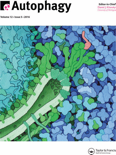
Autophagy
Innovating Understanding of Autophagy in Health and DiseaseAutophagy is a premier peer-reviewed journal published by Taylor & Francis, Inc. in the United States, focusing on advances in the fields of Cell Biology and Molecular Biology. With an impressive impact factor reflected in its Q1 ranking in both categories, Autophagy stands as a vital resource for researchers and professionals dedicated to understanding the intricate mechanisms of cellular degradation and recycling. The journal has been a cornerstone of scientific communication since its inception in 2005, continuing to flourish through 2024, fostering collaboration and innovation in the study of autophagic processes. Although it does not currently offer Open Access options, the journal remains highly regarded for its rigorous peer-review process and its commitment to publishing high-quality, impactful research. By bridging fundamental research with clinical applications, Autophagy plays a crucial role in advancing our understanding of various diseases, making it an essential tool for scholars and practitioners in the biomedical field.

Aging Medicine
Pioneering Research in Gerontology and GeriatricsAging Medicine, published by Wiley, is a pivotal open-access journal that has been at the forefront of research dedicated to the aging population since its inception in 2018. With a focus on both geriatric care and gerontology, the journal serves as a crucial resource for researchers, healthcare professionals, and students interested in understanding the complexities of aging and the related medical challenges. Although it holds a Q3 quartile ranking in the fields of Aging and Geriatrics and Gerontology according to the 2023 metrics, the journal continues to effectively disseminate valuable research and insights, helping to bridge gaps in knowledge and practice. With an E-ISSN of 2475-0360, it offers an open-access model that ensures broader accessibility to its published content, thus promoting collaboration and innovation across disciplines. As the journal converges towards 2024, it remains committed to evolving with the dynamics of aging research, making it a significant platform for the exchange of ideas and advancements in this essential field.
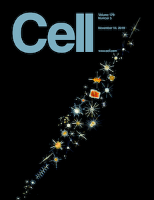
CELL
Pioneering research in biochemistry and genetics.CELL is a premier academic journal in the field of Biochemistry, Genetics, and Molecular Biology, published by CELL PRESS. Founded in 1974, this esteemed journal has steadfastly contributed to advancing our understanding of cellular processes and organisms, making it integral for researchers and practitioners alike. With an impressive impact factor that places it in the Q1 category of its field, CELL ranks #1 out of 221 in general biochemistry and genetics, achieving a remarkable 99th percentile in Scopus rankings. Though it is not currently an open-access publication, the journal regularly disseminates high-quality research that impacts the scientific community significantly. Researchers, students, and professionals seeking to stay at the forefront of innovative discoveries and methodologies in molecular biology will find CELL an invaluable resource through its comprehensive articles and reviews.
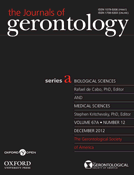
JOURNALS OF GERONTOLOGY SERIES A-BIOLOGICAL SCIENCES AND MEDICAL SCIENCES
Leading the Way in Gerontological Research and PracticeJournals of Gerontology Series A: Biological Sciences and Medical Sciences, published by Oxford University Press Inc, stands at the forefront of aging research, bridging the gap between biological sciences and medical practices to address the complexities of gerontology. With an impressive impact factor reflecting its significant contribution to the field, this journal is recognized within the Q2 quartile in Aging and the Q1 quartile in Geriatrics and Gerontology for 2023, evidencing its high-quality scholarship and relevance. Researchers and professionals will find valuable insights through its comprehensive coverage of aging-related topics, informed by cutting-edge studies ranked among the top in their category—Rank #11 in Geriatrics and Gerontology and Rank #9 in Aging on Scopus. The journal aims to disseminate innovative research that can impact health care practices and enhance the quality of life in older populations. For those engaged in studies of aging, this journal offers a vital platform for sharing knowledge and advancing the understanding of biological and medical sciences as they pertain to gerontology.

Journal of Physiological Sciences
Connecting Researchers to the Heart of PhysiologyThe Journal of Physiological Sciences, published by BMC, stands as a prominent platform for the advancement of research in the field of physiology. Based in Japan, this open-access journal (ISSN: 1880-6546, E-ISSN: 1880-6562) is committed to disseminating high-quality scientific articles that explore various facets of physiological functions and mechanisms. With a 2023 Scopus ranking placing it within the 41st percentile in the category of Physiology, it is recognized for contributing significant insights that bridge basic and applied physiological research. The journal maintains a Q2 quartile ranking within its category, highlighting its impact within the scientific community. Researchers, professionals, and students are encouraged to engage with cutting-edge studies published from 2006 to 2024, fostering an environment of knowledge accessibility and scientific collaboration. The journal not only serves as a vital resource for those involved in physiological research but also promotes broader understanding and application of physiological principles across various health and science sectors.
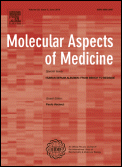
MOLECULAR ASPECTS OF MEDICINE
Transforming Insights into Molecular Health SolutionsMOLECULAR ASPECTS OF MEDICINE is a premier journal published by Elsevier, focusing on groundbreaking research in the fields of biochemistry, molecular biology, and medicine. With an impressive impact factor and ranking within the top quartile across multiple categories, including Q1 in Biochemistry, Clinical Biochemistry, and Molecular Medicine, it serves as an essential platform for sharing innovative findings that advance our understanding of molecular mechanisms in health and disease. The journal, which has been in publication since 1976, provides a diverse range of articles, addressing both fundamental and applied aspects of molecular medicine, thus appealing to a broad audience of researchers, professionals, and students. While MOLECULAR ASPECTS OF MEDICINE does not currently offer Open Access options, it remains a vital resource for accessing high-quality, peer-reviewed scholarly works that significantly contribute to the advancement of biomedical research.
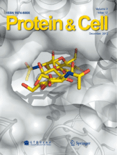
Protein & Cell
Unveiling Innovations in Drug Discovery and BiotechnologyProtein & Cell, published by Oxford University Press, is a distinguished international journal focusing on cutting-edge research in the fields of biochemistry, biotechnology, cell biology, and drug discovery. This open access journal, active since 2014, is dedicated to disseminating innovative findings that advance our understanding of protein functions and cellular processes, making it an essential resource for researchers, professionals, and students alike. With an impressive 2023 impact factor reflected in its Q1 ranking across multiple categories such as Biochemistry, Drug Discovery, and Cell Biology, 'Protein & Cell' stands at the forefront of scientific research, driving collaboration and discussion in the scientific community. Researchers can access the journal freely online, fostering a global exchange of knowledge and contributing to significant advancements in medicine and biotechnology. Located in the United Kingdom, the journal strives to be a pivotal platform for impactful research that influences future studies and applications.

Cell Stress
Driving Innovation in Cancer Research and BeyondCell Stress is a prestigious, peer-reviewed open access journal dedicated to advancing research in the fields of biochemistry, genetics, molecular biology, cancer research, and physiology. Published by SHARED SCIENCE PUBLISHERS OG in Austria, this journal has rapidly established itself since its inception in 2017, achieving Q1 status in multiple categories, indicative of its high impact and quality. With an impressive Scopus ranking—holding a top percentile position in its respective fields—Cell Stress aims to foster interdisciplinary collaboration and disseminate cutting-edge findings that enhance our understanding of cellular stress mechanisms and their implications in health and disease. The journal's commitment to open access since its launch ensures that critical research is accessible to a global audience, thereby facilitating the exchange of knowledge among researchers, professionals, and students alike. Address your submissions or inquiries to AM BLUMENHAG 25-4, Graz 8010, Austria, and contribute to this dynamic platform that is shaping the future of molecular medicine.

GERONTOLOGY
Illuminating the Path to Healthy AgingGERONTOLOGY, published by KARGER in Switzerland, is a prominent journal dedicated to the study and understanding of aging, with a keen focus on the interdisciplinary aspects of geriatric medicine and gerontology. Established in 1957, it has provided a platform for cutting-edge research that covers a wide range of topics including, but not limited to, the biological, psychological, and sociological aspects of aging. With an impressive ranking that places it in the Q3 category for Aging and Q2 for Geriatrics and Gerontology as of 2023, the journal continues to attract high-quality submissions from researchers worldwide, evidenced by its Scopus rankings, which position it favorably within relevant fields. While it operates under a subscription model, the journal remains committed to advancing knowledge that informs practice and policy within an aging society. By fostering innovative studies and discussions, GERONTOLOGY serves as an essential resource for researchers, health professionals, and students alike, dedicated to the care and understanding of older adults.